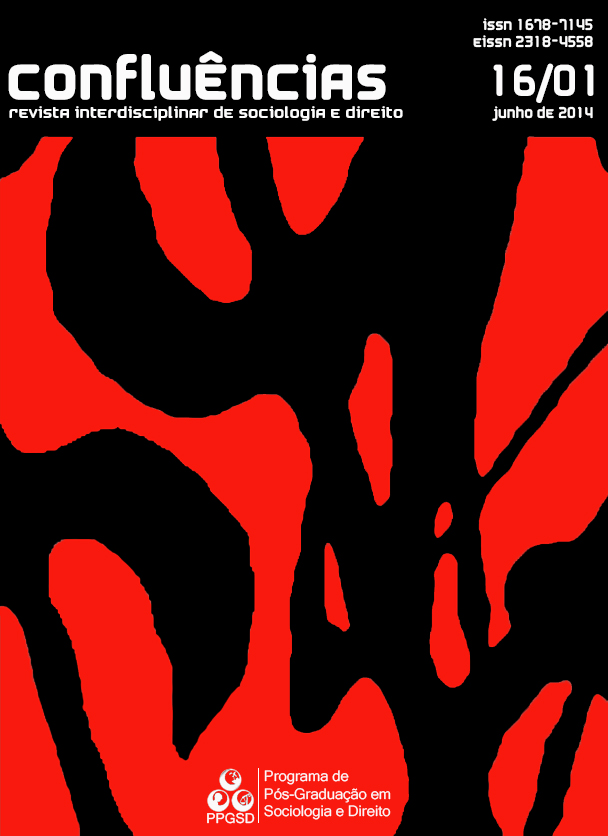No Bystanders Any Longer: Social sciences, social responsibility and sustainability research in an emerging revolution
DOI:
https://doi.org/10.22409/conflu16i1.p340Keywords:
sustainability, paradigm shift, revolutionAbstract
This paper argues that sustainable development in thinking and in practices is the beginning of a revolution, a major societal paradigm shift, which eventually will match the industrial revolution in transforming social, economic, and cultural conditions. The first part of the article discusses several features of this revolution and what it shares with, and how it differs from, the industrial revolution. The second part of the article discusses the role that social sciences in general and sociology in particular can and should play in relation to the revolution of sustainable development, among other things, monitoring and data collection, analyzing, explaining, identifying and providing assessments of social impacts and related developments, but also of an ethically engaged research in sustainability problem-solving as well as policy analyses.
Downloads
References
ABBOTT, Andrew. 2007. “For Humanistic Sociology.” In Clawson, D., Zussman, R. Misra, J., Gerstel, N., Stokes, R. Anderton, D. and M. Burrawoy (eds.) Public Sociology. Fifteen eminent sociologists debate politics and the profession in the 21st century. Berkeley and Los Angeles: University of California Press
ALEXANDER, Catherine. 2005. “Value: economic valuations and environmental policy” in Carrier, J. (ed.) A Handbook of Economic Anthropology. UK: Edward Elgar Publishing.
AXA/IPSOS. 2012. “Individual perceptions of climate risks survey” AXA/IPSOS Survey. Corporate Communications & Group Risk Management – October 2012.
AYERS, John. 2011. The Sustainability Revolution. http://www.vanderbilt.edu/Sustainability/book/S1C1_handout.pdf
BURNS, Tom R. 2012. “The Sustainability Revolution: A Societal Paradigm Shift.” Sustainability. Vol. 4: 1118-1134.
BURNS, Tom R. (2013) “Sustainable Development: Sociological Perspectives.” Prepared for Sociopedia, the International Sociological Association’s electronic encyclopedia.
BURNS, Tom R. & Peter HALL. 2011. The Meta-power Paradigm: Causalities, Mechanisms, & Constructions. Frankfurt/Berlin/Oxford: Peter Lang
CARSON, Marcus, BURNS Tom R., & Dolores GOMEZ CALVO (2009) Public Policy Paradigms: The Theory and Practice of Paradigm Shifts in the EU. Franfurt/Berlin/New York: Peter Lang Publishers
CARSON, Rachel. 1962. The Silent Spring, Publisher xxx
EDWARDS, Andrés. 2005. The Sustainability Revolution: Portrait of a Paradigm Shift. Gabriola Island, Canada: New Society Publishers.
MOKYR, Joel. 1999. The British Industrial Revolution: An Economic Perspective. Boulder, CO: Westwiew Press.
NEW YORK TIMES (NYT). Obituary, "F.E. Dominy, who harnessed water in the American West, is dead at 100," page B13, April 29, 2010
NEEMAN, Havi. 2011. “The Sustainability Revolution.” Coastline Journal, January, 2011:1-18. http://coastlinejournal.org/
PICO DE MIRANDOLA, Giovanni. 1485/1959. Oration on the dignity of man. Chicago, Ill.: Henry Regnery Company
RIFKIN, Jeremy. 2011. The Third Industrial Revolution: How Lateral Power Is Transforming Energy, the Economy, and the World. UK: Palgrave Macmillan
SILO. 2003. Silo: Collected Works, Volume I. Latitude Publisher
STRYDOM, Piet. 1999. “The Challenge of Responsibility for Sociology” Current Sociology Vol. 47:3 65-82
WEBER, Max. 1993. The Sociology of Religion. Boston: Beacon Press
WITOSZEK, Nina. 2012. Our uncommon future. Cultural Perspectives on Sustainability in the Age of Crisis. Manuscript.
WOODS, David. 2010. “Sustainable Development: A Contested Paradigm.” http://www.fwr.org/sustdev.pdf Accessed 18 April 2012.
WORLD COMMISSION ON ENVIRONMENT AND DEVELOPMENT – WED. 1987 Our Common Future “The Brundtland Report”. Transmitted to the General Assembly as an Annex to document A/42/427. UN Commission. New York: UN.







